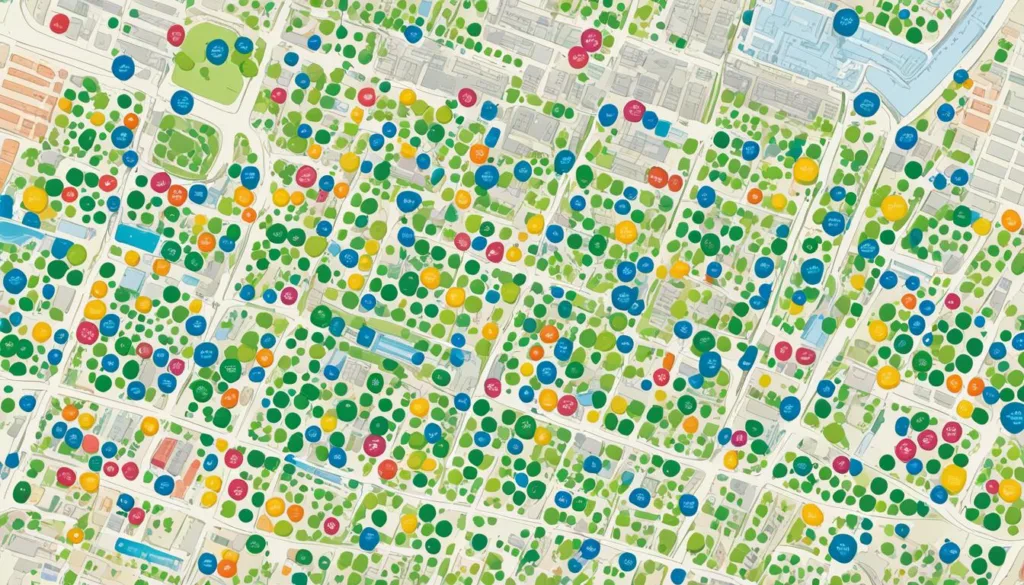Depression Treatment Near Me: Featuring 7 Life-Changing Strategies to Navigating Darkness
Embark on a journey to find hope with “Depression Treatment Near Me.” Discover 7 strategies for genuine healing and relief. Let’s explore together; the answers are within reach.
Depression Treatment Near Me:
In the quiet corners of our lives, where shadows linger and whispers of despair echo, the search for “Depression Treatment Near Me” becomes a beacon of hope. Have you ever wondered if the key to navigating darkness is closer than you think? Join us on a journey as we unveil 7 life-changing strategies, offering not just relief, but a path to genuine healing. Let’s explore together, because sometimes, the answers are right within reach.
Together, let’s embark on this exploration, for sometimes, the answers to our deepest struggles are not elusive—they are right within reach. So, are you ready to uncover the possibilities that “Depression Treatment Near Me” may hold for your personal journey towards healing and well-being?
Finding Hope: Depression Treatment Near Me
Don’t struggle alone. Many resources are available to help you find effective depression treatment. Here’s where to start:
Talk to your doctor: They can assess your symptoms, recommend treatment options, and potentially refer you to a mental health specialist.
Search online directories: Reputable websites like the National Alliance on Mental Illness (NAMI) or Psychology Today allow you to search for therapists and psychiatrists in your area based on insurance and specialty.
Contact your insurance provider: They can provide a list of in-network mental health professionals covered by your plan.
Key Takeaways:
- Discover effective depression treatment options in your local area.
- Find nearby mental health clinics and therapists specializing in depression.
- Explore various therapeutic approaches, including counseling and support groups.
- Understand the role of light therapy, cognitive-behavioral therapy, and antidepressant medications in treating depression.
- Cultivate emotional wellness through therapy services and lifestyle adjustments.
Depression: Understanding the Depths of Low Mood
Depression is a common but serious mood disorder characterized by persistent feelings of sadness and a loss of interest in activities once enjoyed. It can significantly impact your daily life, relationships, and work.
Treatments for Depression: Finding Relief
Fortunately, depression is highly treatable. Explore a range of treatment options, including psychotherapy (talk therapy), medication, and complementary therapies, to find what works best for you.
Mood Disorders: Beyond Depression
Mood disorders are a group of mental health conditions that cause significant changes in emotional state. Depression is one type, but others include bipolar disorder and cyclothymia. Understanding the different mood disorders can help you get the right diagnosis and treatment.
Major Depressive Disorder (MDD): A Closer Look
The most prevalent kind of depression is known as major depressive disorder (MDD). It involves a combination of symptoms that last for at least two weeks and significantly impact your life.
Persistent Depressive Disorder (PDD): A Long-Term Challenge
Dysthymia, another name for persistent depressive disorder (PDD), is a less severe type of depression that persists for two years or longer. While less severe than MDD, PDD can still significantly impact your quality of life.
Seasonal Affective Disorder (SAD): When Winter Brings You Down
Seasonal affective disorder (SAD) is a type of depression triggered by seasonal changes, typically with symptoms worsening in the fall and winter months and improving in the spring and summer.
Psychotherapy: Talking Your Way to Relief
Psychotherapy, also known as talk therapy, is a form of treatment where you work with a mental health professional to identify negative thoughts and behaviors that contribute to depression and develop healthier coping mechanisms.
Medication: Balancing Brain Chemistry
Medications can play a vital role in managing depression by regulating neurotransmitters in the brain. Explore different options with your doctor to find the medication that works best for you.
Complementary Medicine: Supporting Your Journey
Complementary therapies like mindfulness meditation, yoga, and exercise can be used alongside traditional treatments to manage depression symptoms and improve overall well-being.
Causes of Depression: Unveiling the Roots
Depression can be caused by a complex interplay of factors, including biological, psychological, and social influences. Understanding your individual triggers can help you manage your condition.
Symptoms of Depression: Recognizing the Signs
Numerous emotional, physical, and cognitive symptoms can indicate depression. Knowing the signs can help you identify depression early and seek treatment.
Understanding Seasonal Affective Disorder (SAD) and Its Impact on Mental Health
Seasonal Affective Disorder (SAD) is a type of depression that follows a recurring seasonal pattern. It is characterized by the onset of depressive symptoms during specific seasons, most commonly winter, and a remission of symptoms during other seasons, such as summer. SAD can significantly impact mental health and overall well-being.
Unlocking Light Within: Navigating “Depression Treatment Near Me” for Genuine Healing
In the hushed corners of our lives, where shadows linger and the echoes of despair persist, the quest for “Depression Treatment Near Me” emerges as a beacon of hope. Have you ever found yourself pondering whether the key to navigating this darkness is indeed closer than you initially believed? Join us on an enlightening journey as we gradually unveil 7 profoundly transformative strategies. These approaches promise more than mere relief; they lay out a tangible path to genuine healing.
Definition and Symptoms of Seasonal Affective Disorder
SAD is more than just feeling a little down during the winter months. It is a clinically recognized mental health condition with specific diagnostic criteria. Common symptoms of SAD include:
- Depressed mood
- Lack of interest in activities
- Low energy and fatigue
- Difficulty concentrating
- Changes in appetite or weight
- Sleep disturbances.
- Feelings of hopelessness or worthlessness
- Social withdrawal
If you experience these symptoms and they recur seasonally, it may be a sign of SAD.
Winter-Pattern SAD vs. Summer-Pattern SAD: Key Differences
SAD can manifest differently depending on the season. Winter-pattern SAD is the most common subtype and is characterized by the onset of symptoms in the fall or winter months and a remission of symptoms in the spring or summer. Summer-pattern SAD, although less common, follows the opposite pattern, with symptoms occurring in the spring or summer and remitting in the fall or winter.
While both subtypes share similarities in terms of depressive symptoms, the differences in timing can have significant effects on mood and overall functioning. Understanding these distinctions is crucial for accurate diagnosis and treatment planning.
Exploring the Role of Natural Light and Serotonin in SAD
Natural light and serotonin play critical roles in the development and progression of SAD. Reduced exposure to sunlight during the winter months can disrupt the body’s natural production of serotonin, a neurotransmitter that regulates mood. This imbalance in serotonin levels is believed to contribute to the onset of depressive symptoms in individuals with winter-pattern SAD.
The image above illustrates the importance of natural light in regulating serotonin production and its impact on mental health.
Furthermore, exposure to natural light, particularly during the morning hours, can help alleviate symptoms of SAD by stimulating the production of serotonin and improving mood. Light therapy, a treatment modality that involves exposure to bright artificial light, is often recommended as a beneficial intervention for individuals with SAD.
Significant Factors in Seasonal Affective Disorder (SAD) |
Impact on Mental Health |
|---|---|
| Natural Light | Disrupted serotonin production leading to depressive symptoms. |
| Serotonin Levels | Imbalance contributing to mood regulation difficulties. |
| Winter-Pattern SAD | Seasonal onset of symptoms affecting overall mood and functioning |
| Summer-Pattern SAD | Opposite seasonal pattern of symptoms impacting mood and well-being. |
The table above summarizes the significant factors in SAD and their impact on mental health.
Comprehensive Treatment Approaches for Depression
When it comes to treating depression, a comprehensive approach is often the key to success. There are various treatment options available that address different aspects of the condition. In this section, we will explore some of the most effective treatment approaches for depression, including light therapy, cognitive-behavioral therapy adapted for Seasonal Affective Disorder (CBT-SAD), antidepressant medications, and natural alternatives such as supplementation and lifestyle adjustments.
Light Therapy as an Effective Option for SAD
One of the comprehensive treatment approaches for depression is light therapy, which has proven to be particularly effective in treating Seasonal Affective Disorder (SAD). SAD is a type of depression that occurs seasonally, usually during the winter months when there is less exposure to natural sunlight. Light therapy involves exposing oneself to bright light, typically from a lightbox, for a specific duration each day. This exposure to artificial light helps regulate the body’s circadian rhythm and boosts serotonin levels, leading to an improvement in mood and a reduction in depressive symptoms.
Cognitive Behavioral Therapy Adapted for SAD (CBT-SAD)
Another effective comprehensive treatment approach for depression, specifically SAD, is Cognitive Behavioral Therapy adapted for SAD (CBT-SAD). CBT-SAD focuses on identifying and challenging negative thought patterns and behaviors associated with seasonal depression. Through cognitive restructuring and behavioral techniques, individuals can learn to manage their symptoms, develop coping strategies, and improve their overall well-being. CBT-SAD is a structured and goal-oriented therapy that is usually conducted over a period of several weeks or months, depending on the individual’s needs.
Antidepressant Medications: Understanding SSRIs
Antidepressant medications, specifically Selective Serotonin Reuptake Inhibitors (SSRIs), are a commonly prescribed treatment option for depression. SSRIs work by increasing serotonin levels in the brain, which helps regulate mood and alleviate depressive symptoms. These medications are often prescribed in conjunction with therapy and may take several weeks to show their full effect. It’s important to work closely with a healthcare professional when considering or using antidepressant medications to ensure proper dosage and monitoring of potential side effects.
Natural Alternatives: Supplementation and Lifestyle Adjustments
In addition to conventional treatment options, there are natural alternatives that can complement the comprehensive approach to treating depression. Supplementation with certain vitamins, minerals, and herbal remedies has shown promise in alleviating depressive symptoms. For example, omega-3 fatty acids, St. John’s wort, and S-adenosylmethionine (SAMe) are commonly used natural supplements for depression. Additionally, making lifestyle adjustments such as regular exercise, maintaining a balanced diet, ensuring sufficient sleep, and engaging in stress-reducing activities can have a positive impact on mental well-being.
Navigating Hope Locally: Tailoring Your Depression Treatment Near Me
By integrating these comprehensive treatment approaches for depression, individuals can address the multi-faceted nature of the condition and increase their chances of achieving long-term recovery and improved quality of life. It’s important to remember that each person’s experience with depression is unique, so finding the right combination of treatments may require trial and error. Working closely with healthcare professionals can help guide individuals towards the most effective treatment plan for their specific needs.
Depression Treatment Near Me –Decoding Psychotherapy: Navigating Mental Health Clinics Nearby

Psychotherapy plays a vital role in the treatment of depression. It offers a safe and supportive environment for individuals to explore their thoughts, emotions, and behaviors, ultimately working towards improving their mental well-being. In this section, we will decode psychotherapy and help you understand its importance in your journey to wellness.
Psychotherapy comes in various forms, each tailored to meet the unique needs of individuals. Let’s take a closer look at some of the most common types:
-
Cognitive Behavioral Therapy (CBT):
This approach focuses on identifying and changing negative thought patterns and behaviors that contribute to depression. It helps individuals develop coping skills and strategies to manage their symptoms effectively.
-
Psychodynamic Therapy:
This type of therapy explores the unconscious processes and how they impact an individual’s thoughts, feelings, and behaviors. It aims to uncover unresolved conflicts from the past and promote insight and self-awareness.
-
Interpersonal Therapy:
This therapy focuses on improving an individual’s relationships and communication skills. It addresses interpersonal issues that may contribute to depression and offers strategies to strengthen social connections.
-
Family Therapy:
In this approach, the therapist works with the entire family to improve communication, resolve conflicts, and foster a supportive environment. It can be particularly beneficial when family dynamics play a role in an individual’s depression.
Understanding the different types of psychotherapy can help you make an informed decision about the most suitable approach for your needs. Once you’re ready to begin your therapy journey, it’s important to navigate mental health clinics nearby to find the right resources and support.
Guiding Light: Initiating Your Search for Depression Treatment Near Me
If you’re unsure about where to start, consider reaching out to your primary care physician for recommendations or conducting an online search for mental health clinics in your area. Reading reviews and seeking referrals from trusted sources can also provide valuable insights into the quality of care provided.
Remember, finding the right therapist and mental health clinic is a crucial step towards unlocking the tools and support you need to overcome depression. Take your time, ask questions, and trust your instincts in finding the right fit for your journey to wellness.
Depression Treatment Near Me: Finding Local and Accessible Support

Finding local and accessible support is essential when seeking depression treatment. In the quiet corners of our lives, where shadows linger and whispers of despair echo, the search for “Depression Treatment Near Me” becomes a beacon of hope. Have you ever wondered if the key to navigating darkness is closer than you think? Join us on a journey as we unveil 7 life-changing strategies, offering not just relief, but a path to genuine healing. Let’s explore together, because sometimes, the answers are right within reach.
Depression Treatment Near Me- Local Counseling for Depression: What to Expect
Local counseling for depression is a valuable resource for individuals seeking support and guidance. When you engage in counseling sessions, you can expect a safe and compassionate environment where you can openly discuss your thoughts, feelings, and challenges. A licensed counselor or therapist will work with you to explore the root causes of your depression and develop strategies to manage and overcome it. Through evidence-based techniques and personalized treatment plans, counseling can provide you with the tools you need to navigate depression and improve your mental well-being.
Nearby Mental Health Services: How to Connect with Professionals
Connecting with mental health services and professionals in your area is crucial for receiving comprehensive support. To find nearby mental health services, you can start by conducting an online search using keywords such as “mental health services near me” or “psychiatrist nearby.” Online directories and platforms specific to mental health can also help you find professionals in your area. Additionally, consider reaching out to your primary care physician, who can provide recommendations and referrals to trusted professionals. Remember, connecting with professionals who specialize in depression treatment can offer personalized care and expertise to support your journey towards improved mental health.
Support Groups for Depression: Healing Through Shared Experiences
Support groups for depression provide a powerful avenue for healing and growth. Through these groups, individuals with depression can come together, share their experiences, and offer support to one another. Sharing common struggles, triumphs, and coping strategies can foster a sense of belonging and validation, helping you feel understood and less alone.
Many support groups incorporate evidence-based techniques, such as cognitive behavioral therapy (CBT) or mindfulness, to empower participants in managing their depression. By engaging in support groups, you can connect with others who truly understand what you’re going through, creating a supportive community that encourages recovery and resilience.
Cultivating Emotional Wellness: Depression Treatment Near Me
In the quiet corners of our lives, where shadows linger and whispers of despair echo, the search for “Depression Treatment Near Me” becomes a beacon of hope. Have you ever wondered if the key to navigating darkness is closer than you think? Join us on a journey as we unveil 7 life-changing strategies, offering not just relief, but a path to genuine healing. Let’s explore together, because sometimes, the answers are right within reach.
Embarking on Healing Paths: Locating Depression Treatment Near Me for Emotional Wellness
Cultivating emotional wellness is a significant aspect of depression treatment. Therapy services in your area can provide the support and guidance needed to navigate the complexities of emotional well-being. By finding therapy services that align with your needs, you can embark on a transformative healing journey.
Finding therapy services in your area is the first step in your pursuit of emotional wellness. Whether you’re seeking individual therapy, group therapy, or specialized therapy approaches, there are numerous options available to you.
Guiding Light: Navigating Therapy Services for Depression Treatment Near Me
But how do you go about finding therapy services in your area?
One approach is to start by researching online directories that list therapy providers. These directories often allow you to filter by location, specialization, and type of therapy. By narrowing down your search criteria, you can find therapists in your area who offer the specific type of therapy that aligns with your needs.
Another valuable resource is seeking recommendations from trusted individuals or professionals in your network. They may have firsthand experience with therapy services in your area and can provide valuable insights and recommendations.
So what therapy options are available to you?
Therapy services offer a wide range of approaches to address emotional wellness. Some common therapy modalities include cognitive-behavioral therapy (CBT), psychodynamic therapy, family therapy, and mindfulness-based therapies. Each approach has its own benefits and focuses on different aspects of emotional well-being.
By working with a licensed therapist, you can gain a deeper understanding of your emotions and develop effective coping strategies. Therapy provides a safe and nonjudgmental space for you to explore your thoughts, emotions, and experiences, enabling personal growth and healing.
Are you ready to take the next step in your journey towards emotional wellness? Seek therapy services in your area and discover the transformative power of therapeutic support. Remember, you don’t have to navigate the challenges of depression alone. Help is available, and healing is within reach.
Community Unity: Embracing Support for Depression Treatment Near Me
By joining forces in our communities and embracing individual efforts, we can battle depression together. Recovery from depression is not a solitary path. It is a road that we travel hand in hand with our communities, where support and understanding are our constant companions.
Whether it’s through local support groups, counseling services, or the love and encouragement of friends and family, ongoing support plays a crucial role in our journey towards healing.
Conclusion
In our journey to uncover effective strategies for navigating depression, we have discovered that the solution may be closer than we realize. The search for “Depression Treatment Near Me” is a hopeful quest that leads us to the realization that genuine healing is within reach.
As we conclude our exploration of depression treatment options, let us remember that resources are available to aid us in our recovery. From Depression Treatment Near Me to online forums and educational platforms, there are numerous sources of support and information on the road to wellness. Remember, you are never alone in this battle.
FAQ
What are some effective treatment options for depression?
Effective treatment options for depression include therapy services, medication, and lifestyle adjustments. It is important to consult with a mental health professional to determine which approach is best for you.
How can I find a depression treatment near me?
To find a depression treatment center near you, you can utilize online directories, search for local mental health clinics, or ask for recommendations from healthcare professionals.
What can I expect from counseling sessions for depression?
In counseling sessions for depression, you can expect to collaborate with a licensed therapist or counselor who will help you explore your emotions, develop coping strategies, and work towards improving your mental health and overall well-being.
Are there support groups for depression treatment near me?
Yes, there are often support groups for depression available in local communities. These support groups provide a safe space for individuals to share experiences, seek guidance, and receive emotional support from others who understand what they are going through. You can inquire with mental health clinics or organizations in your area to find out more information.
How do I find therapy services in my area?
To find therapy services in your area, you can search online directories, ask for referrals from healthcare providers, or contact mental health clinics or counseling centers nearby. It is important to consider your specific needs and preferences when choosing a therapist and ensure that they are licensed and experienced in treating depression.
Where can I find nearby mental health services?
Nearby mental health services can be found through online directories, community health centers, local hospitals, or by asking your primary care physician for recommendations. It is important to reach out for professional help if you are experiencing symptoms of depression.
What is the role of community support and ongoing resources in treating depression?
Community support, such as participating in support groups or engaging with mental health organizations, can provide valuable emotional support and a sense of belonging, especially for individuals dealing with depression. Ongoing resources, such as therapy services and educational materials, can also play a crucial role in providing long-term support and guidance.


